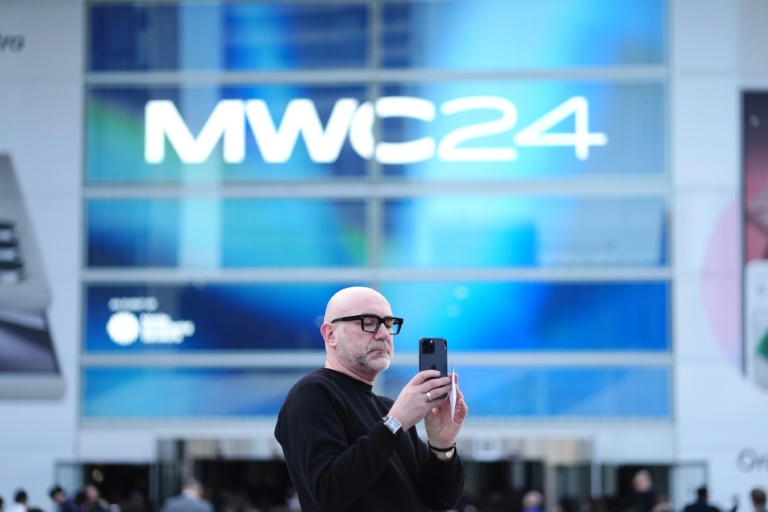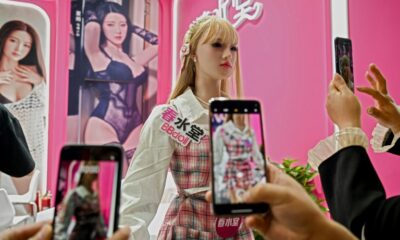Smartphone makers are packing their latest devices with flashy new artificial intelligence tools such as real-time voice translation and advanced photo editing in efforts to reignite consumer demand.
The trend was on display at the telecom industry’s biggest annual show, the four-day Mobile World Congress (MWC) which got underway Monday in Barcelona, where handset makers focused on the unique AI-powered features of their new flagship devices.
“Phones have just got boring, they are not as exciting as they used to be. The changes from one model to the next are not that great,” Ben Wood, chief of researcher at CCS Insight, told AFP.
While cameras, battery life and screens are “a little better” than before, companies need to add more “exciting” capabilities to their products to encourage people to upgrade their phones, Wood added.
“AI is a way to do that,” he said.
South Korean giant Samsung’s stand at the MWC prominently plugged its new premium AI-powered Galaxy S24 range, which allow users to make or receive a call in a language they don’t speak and then receive a live translation of the call both audibly and on the screen.
The feature can handle 13 languages, including French, Japanese and Hindi.
The new handsets — which were launched in January — also includes an AI-powered photo editing tool that allows you to easily move and erase objects and people from photos, and then generates content to fill the empty spaces that match its surroundings.
– ‘Changes everything’ –
Smaller device makers are also betting heavily on AI.
China’s Honor launched its new AI-infused flagship Magic 6 Pro smartphone in Barcelona which features a camera with motion-sensing capabilities that can detect and automatically photograph a fast actions such as sports at the best moment.
The device anticipates users’ needs to help them navigate apps more efficiently. For example it can recognise an address in a text message to automatically direct you to a map app.
“AI changes everything,” Honor CEO George Zhao said, adding it “can make fantastic things happen.”
Smartphone makers are now able to offer these sort of AI-powered features — often directly on the handset without resorting to more time-consuming and costly cloud computing — because the computing power of AI chips has increased significantly, analysts said.
“This potentially could be the start of a new era for smartphones,” said PP Foresight analyst Paolo Pescatore, adding the challenge for device makers will be to inform consumers about the new AI-powered tools.
“Articulating the merits of AI and the new features to users will be no easy feat. Not all users are necessarily aware of AI and they will be sceptical at first,” he told AFP.
– Falling sales –
The focus on AI comes amid sluggish smartphones sales as consumers are taking longer to upgrade their devices due to a lack of significant innovations, high inflation and economic uncertainties.
Global smartphone shipments declined 3.2 percent to 1.17 billion units in 2023, its second consecutive yearly decline, according to the IDC consultancy which predicts a marginal rebound this year.
AI-powered tools could also become a new revenue stream for device makers. Samsung has hinted that it may introduce more powerful AI features in the future for paid subscribers.
“The kind of value it is adding does not feel like it is enough to justify spending money on it. But Samsung have more of an eye on the future when AI goes to a whole different level of experience and becomes even more powerful that people then may be prepared to pay for it,” said Wood.
“Everybody wants to drive a services revenue. They all look at Apple, particularly in the mobile phone business, and they are so jealous of Apple being able to generate so much revenue from a services model,” he added.
Apple charges users of its iPhone for a variety of services such as extra cloud storage which has buoyed its profits.

 Business4 months ago
Business4 months ago
 Business5 months ago
Business5 months ago
 Events3 months ago
Events3 months ago
 People4 months ago
People4 months ago
 Events6 months ago
Events6 months ago
















